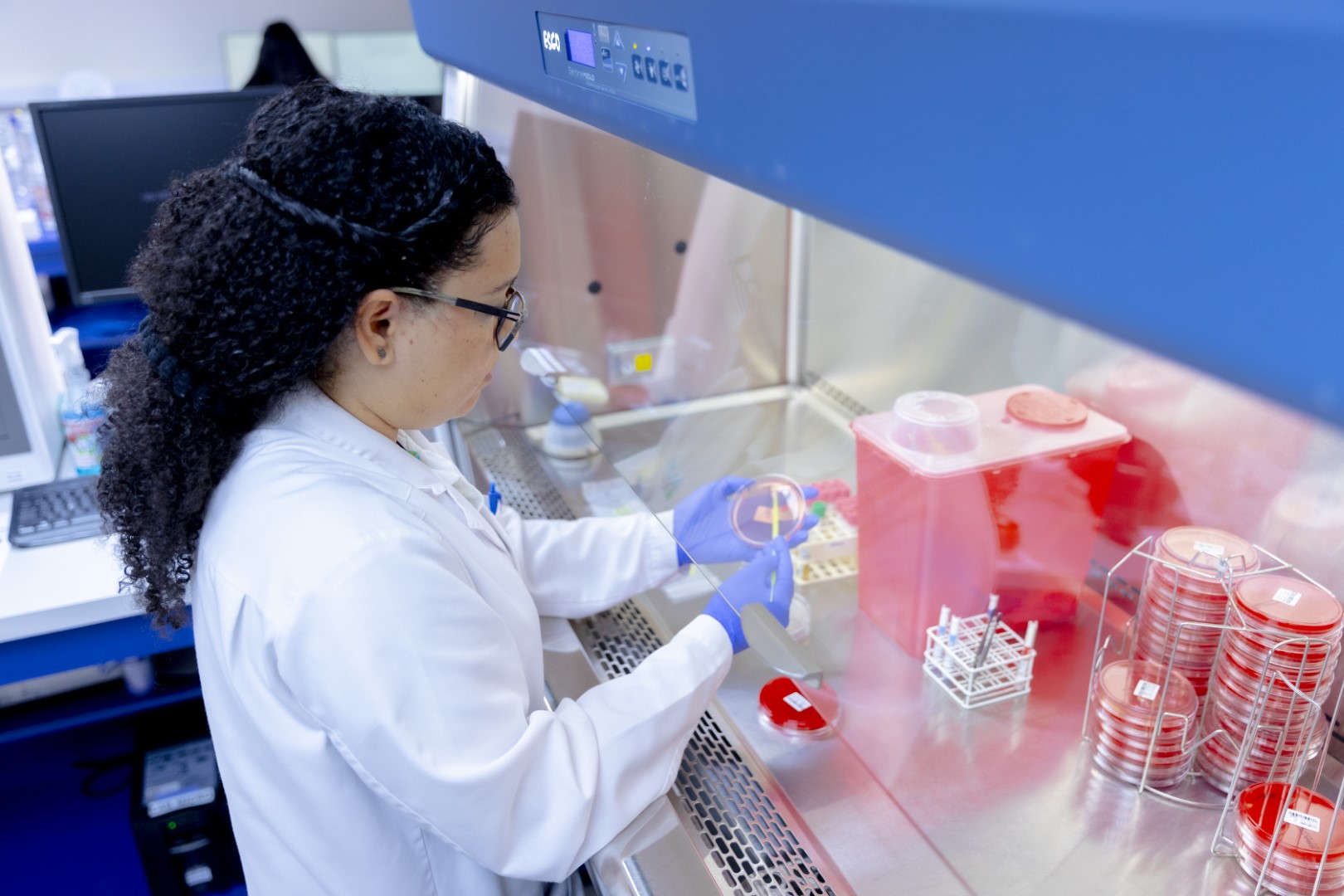Medical Microbiology Tests

Medical Microbiology Order Forms
The department of Medical Microbiology is divided into Serology, Bacteriology, Parasitology, and Mycology and is located at the Sasaki outpatient clinic.
Order forms guidelines
An order form must be completely filled out before it can be processed. The patient data should be listed at the top left of the request form. It is also important to mention the clinical data and the use of antibiotics.
Clinical data is considered as follows:
first day of symptoms
kind and duration of symptoms
infection problem
medical data and relevant data with regard to potential infection
In addition, recent antibiotics should be mentioned, because it can affect culturing and/or interpretation.
Suspected of importing viruses always mention place and duration of stay abroad together with the date of return to Aruba.
The Medical Microbiology department uses the following order forms on the left side of this page. There are two types of forms available:
the purple application is intended for bacteriological & parasitological examination
the blue form is intended for serological testing
On the purple order form the question is divided by type of pathogen (bacteria, parasites, fungi). Under the heading of material, the type of material must be filled or mentioned. The duration of a culture can vary from 2 days to 6 weeks depending on the kind of pathogen.
Blue request forms are divided into viral, bacterial, and parasitic serology. In addition, specific packages have been put together in which no changes can be made. The submitted sample can be serum, plasma, liquor, and sometimes urine. The duration of serological testing is particularly dependent on the material and may vary from 2 to 10 days.
Guidelines for submitting material
The Medical Microbiology department has certain requirements for submitting materials to guarantee the highest quality of our test results:
Requirements
- Preferably, the sample must be taken, prior to initiating any antibiotics.
- The sample must be derived from the “infected body part”, and avoid contact with other parts of the body in order to prevent other non-relevant micro-organisms to be included.
- The sample must be aseptically removed/collected.
- The sample is to be collected and transported from the time of collection as soon as possible to the laboratory, since micro-organisms may die outside the body. In addition, it is possible that there are multiple types of micro-organisms (commensal and pathogenic) and that one species can grow faster, as a result of which the true pathogen is obstructed/overgrown, obtaining false results.
- For patients from general practitioners, the instruction forms should be consulted
- Clearly state the required research and the type of sample.
- The collected sample must be placed in a “Bio-hazard” bag and packaged with the request form.
The collection of material
The Medical Microbiological laboratory research puts emphasis on the importance of the material collected, the transport, and the time it is delivered to the laboratory. Valuable material must be delivered directly to the laboratory by the physicians. Liquor is always treated as CITO. The material must be delivered to the central office of the laboratory at the hospital.
Blood cultures: Bring bottles immediately after collection to the central office of the laboratory. Vials are placed in the yellow bin designed and identified for the blood cultures.
Liquor: Immediately after collecting hand them into the central office of the laboratory and inform the Bacteriology department. Bottles must be placed in the yellow bin and identified as OTHER. After 16:00 and on week-ends call the on-duty analyst call.
Feces swabs/containers; sputum & urine: After collection, hand the sample in at the central office of the laboratory in a bio-hazard bag. Samples should be identified by the patient’s name and birth date. Samples are placed in the refrigerator.
Materials required for the collection of samples can be ordered through the warehouse of the laboratory, via e-mail, or by telephone number 527 4000.
For more information about specific tests search the vademecum.
Results
Results are sent to the requesting physician, medical specialist, and the ward where the patient is admitted. In addition, consult the results through the hospital and/or laboratory result system in the various departments. General practitioners receive the results only electronically through Promedico.
